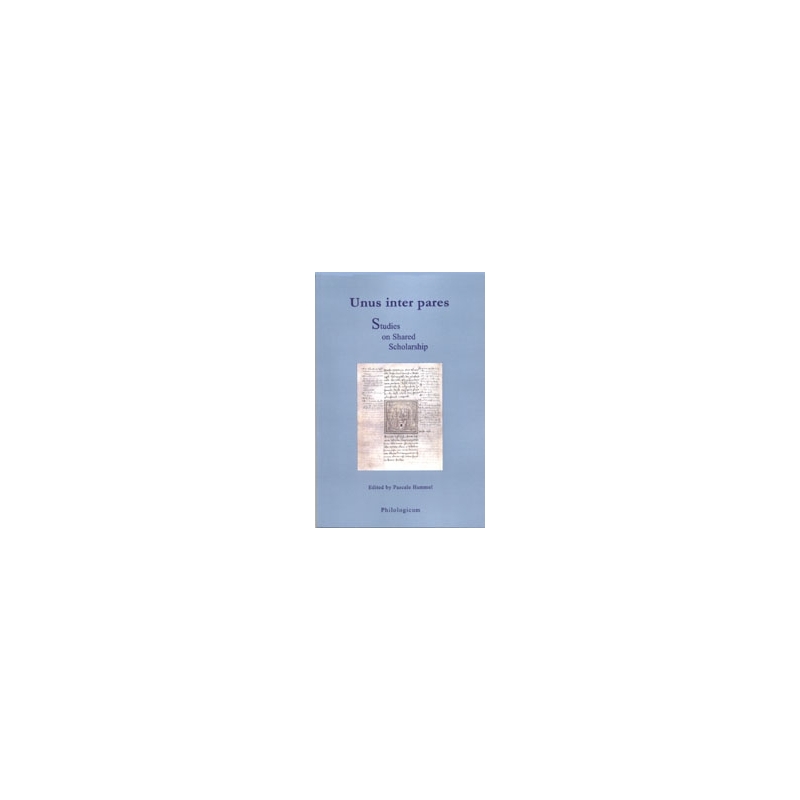- Rupture de stock

Reférence :: DLGM-060421-01
Éditeur :: Librairie Hachette
Reférence :: DLGM-231009-02
Éditeur :: Ophrys
Reférence :: DLGM-150508-03
Éditeur :: Domus latina
Reférence :: DLGM-150508-01
Éditeur :: Domus latina


Hummel, Pascale,
En diverses langues,
Philologicum, 2009,
16 x 24, 195 pages, broché.
Neuf, 9782917741191

Garanties de sécurité

Politique de livraison

Politique de retours
Edited by Pascale Hummel. The world in which contemporary scholars live and work is manifold and overcrowded. The production of thought and books is becoming increasingly huge, and sometimes may seem overwhelming. This collective volume addresses the questions and the problems generated by this historical, and even civilizational, evolution. Knowledge, divided into many subfields and academic disciplines, is becoming a very complicated matter, one that is almost impossible to master as an undivided whole. Therefore, what does it mean to be a scholar (even an outstanding one), when the knowledge one can embrace is becoming exponentially wide? What does it mean for a scholar to be learned and productive, and more precisely to share scholarship with many others in many languages all around the world? What are the risks, and maybe the dangers, of this shared scholarship (contamination, plagiarism, inhibition, self-sterilization, meaningless sophistication, forgery, etc.), but also the possible advantages (collective work and tasks) of such a situation? The contributors to this volume investigate how in the present and in the past scholars have learnt to cope with the increasing amount of scholarly production, what it means to search a part of a boundless whole, to be an “unus inter pares,” the differences between the (not necessarily all-knowing) artist and original-creative writer on one side, and the “scholar” as an academic agent, sometimes (or often) very learned, gifted and inventive on the other? Contributors explore all the fields of science and knowledge, but particularly the humanities (philology, history, philosophy, literature, linguistics, etc.). Already the author of about thirty books, Pascale Hummel is a philologist, historian of philology and translator (notably of Lou Andreas-Salomé). She is in charge of several research programs on the teaching of Greek as well as on the history of ignorance and the transmission of knowledge (Institut national de recherche pédagogique, Paris). Her most recent works also deal with the history of ideas, literature and arts.
Fiche technique
Aucun avis n'a été publié pour le moment.
Reférence :: PLGL-210607-04
Reférence :: PLGL-121024-03
Éditeur :: Les Belles Lettres
Reférence :: PLGL-090708-04
Éditeur :: Latomus Revue d'Etudes latines
Reférence :: PLGL-1106-51
Éditeur :: Librairie Hachette
Reférence :: PLGL-020520-04
Éditeur :: Librairie C. Klincksieck
Reférence :: PLGL-021007-01
Éditeur :: Librairie C. Klincksieck
Reférence :: PLGL-050509-12
Éditeur :: Ernest Thorin
Reférence :: PLGL-120811-07
Reférence :: PLGL-071009-01
Éditeur :: Klincksieck
Reférence :: PLGL-260308-12
Reférence :: PLGL-290208-05
Éditeur :: Lipsiae in aedibus B. G. Teubneri
Reférence :: PLGL-1106-12
Éditeur :: Les Belles Lettres

Hummel, Pascale,
En diverses langues,
Philologicum, 2009,
16 x 24, 195 pages, broché.
Neuf, 9782917741191